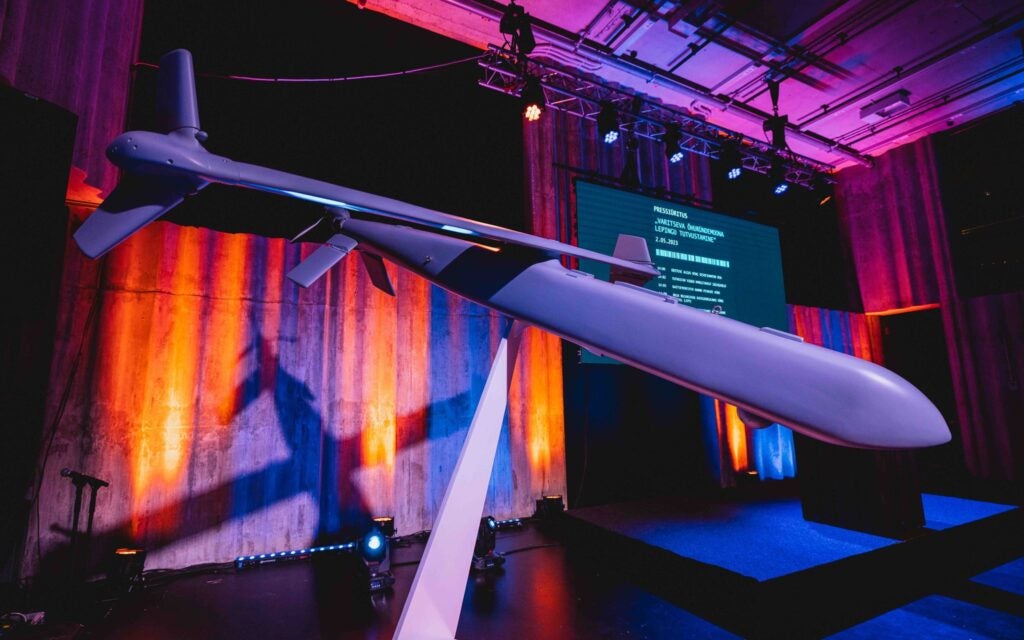Estonia Orders Israel Aerospace Industries’ Loitering Munitions
The Estonian government announced on Tuesday that it would be purchasing loitering munitions from Israel Aerospace Industries.
In a tweet following the contract signing ceremony, Defense Minister Hanno Pevkur said that the deal had a “nine-figure” value in Euros. Neither Tallinn or IAI provided further details on the total cost, amount procured or model of loitering munition being purchased beyond a description of them as “stealthy”, but a mockup of IAI’s Mini Harop loitering munition was present at the ceremony.
Deliveries of the loitering munitions ordered are expected to begin in 2024. According to the Center for Defense Investments (RKIK), Estonia’s military procurement agency, Estonian troops will be trained in operating the loitering munitions prior to the start of deliveries, allowing for them to be quickly operational. Full operational capability is expected to be reached in 2025, following the creation of dedicated units operating loitering munitions.
According to Pevkur, the procurement of loitering munitions will provide an additional layer of indirect fire capabilities for the Estonian Defense Forces, adding both flexibility and range. Pevkur noted that the importance of indirect fire capabilities could not be overestimated, due to the damage caused by Russian indirect fire in Ukraine.
Kaarel Mäesalu, chief of the Capability Development Section of the Estonian Defense Forces, told public broadcaster ERR that the precision attack capabilities of the loitering munitions would significantly bolster EDF capabilities. Mäesalu added that their ability to operate in varying weather conditions made them suitable for use in Estonia.
IAI President and Chief Operating Officer Boaz Levi said that the signing reflected growing trust between the company and Estonia, which he described as a strategic partner for IAI.
Tallinn began market research for stealthy loitering munitions in the spring of 2022, with offerings from the United States, Turkey, South Korea, Poland, Germany, Israel, Great Britain and Estonia evaluated. The main evaluation metric was long-range offensive capability, with accuracy, damage resistance, and large-scale simultaneous attack capabilities evaluated as well.

